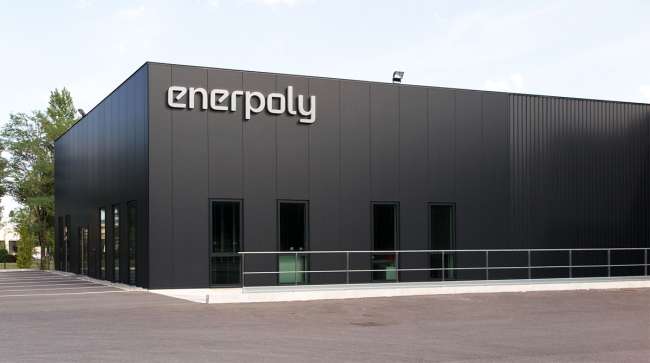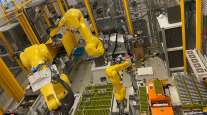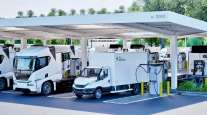Battery Startup Enerpoly Taps Ex-Northvolt Staff

[Stay on top of transportation news: Get TTNews in your inbox.]
Swedish startup Enerpoly AB has recruited two former Northvolt executives and bought a production line from a bankrupt rival as it seeks to transform the mundane alkaline battery into an affordable option for the energy-storage industry.
The Stockholm-based company, founded in 2018, hopes to start production late this year or early 2025 having acquired machinery from the estate of defunct Nilar AB, CEO Eloisa de Castro said. The firm also has recruited the services of Northvolt AB alumni Annika Werneman and Emelie Tillegard as heads of production and industrialization, respectively.
Enerpoly’s plans for expansion come as a packed field of startups are developing what they hope will be the next big thing to aid electrification. The uncertainty is already stoking trouble in Sweden’s burgeoning battery sector, with Northvolt struggling to scale up production at its first plant and listing candidate Polarium Energy Solutions AB ousting its chief executive after racking up losses. Nilar, meanwhile, filed for bankruptcy late last year despite the backing of investors including state-owned pension funds.
“In this market, there is a need for many different technologies,” de Castro said.
Want more news? Listen to today's daily briefing above or go here for more info
The company’s “battery technology is one of few that would’ve been able to use the manufacturing equipment that we have acquired from Nilar,” she added. “So this was an opportunity for us, but it would not have been an opportunity for every single other battery company out there.”
Enerpoly, which has so far raised almost $17 million, plans for a plant with a capacity of 100 megawatt hours annually that can serve as a blueprint for gigafactory production in the future, according to the CEO. Its zinc-ion technology is based on innovation that will facilitate making rechargeable cells with the same materials as the regular alkaline batteries that are churned out by companies such as Duracell Inc. and Varta AG.
“Working with zinc and manganese dioxide is interesting because these are very abundant, very inexpensive and very price stable materials,” de Castro said. “The bill of materials is typically 60% to 80% of battery costs, so what you need to do to get to attractive battery sell costs, and to be able to address the large portion of the market, is to scale up and to have a good bill of materials.”




